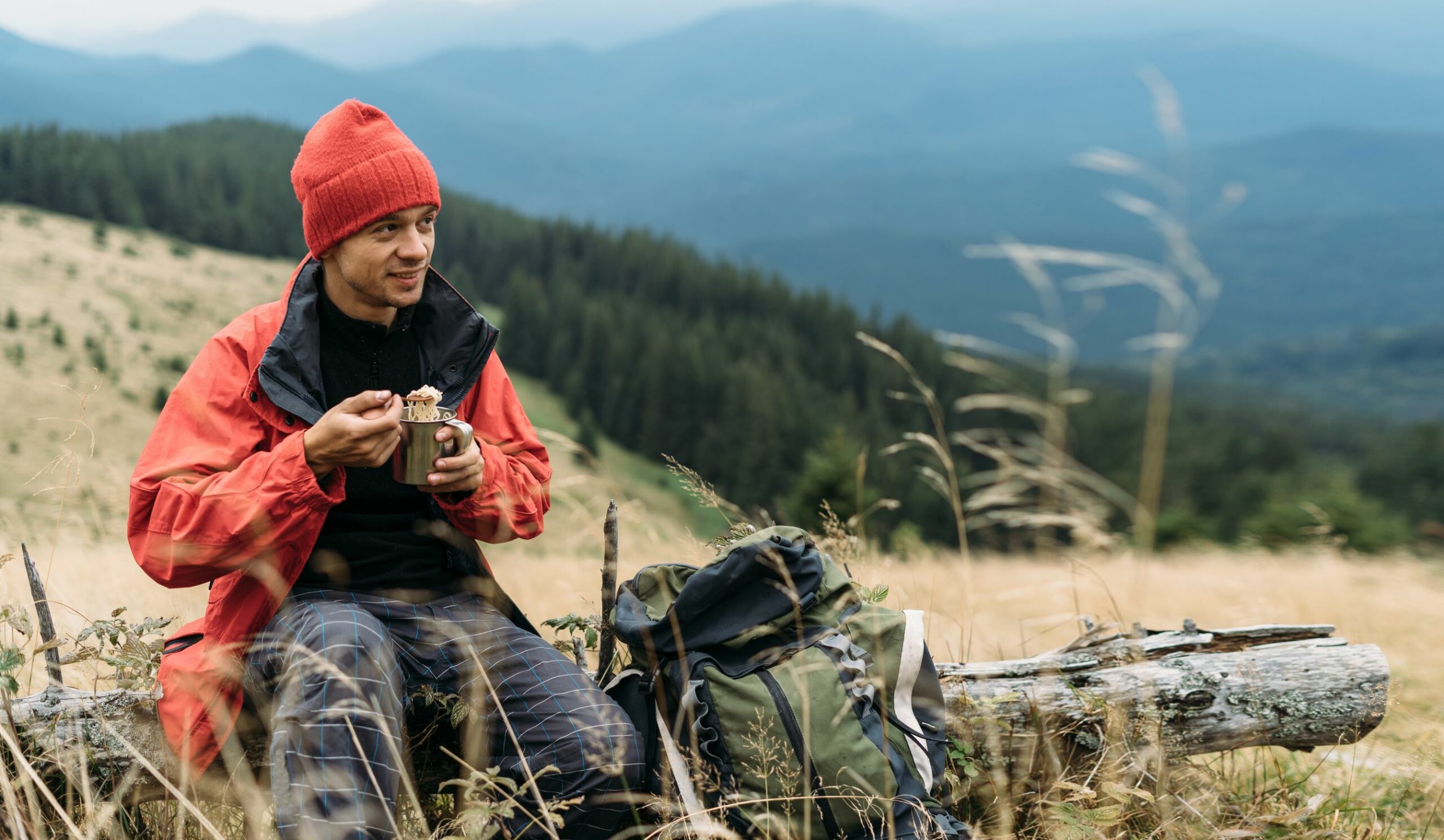How Much Protein Do I Need Hiking?
Protein is a crucial macronutrient that plays a role in muscle recovery and adaptation to exercise. When packing your food, it is advisable to ensure you are eating enough protein. But many people ask, “how much protein do I need hiking?”
Anything from 1.5 – 2 grams of protein per kilogram of body weight would be a good amount for a hike. But if it is just a one-day hike, then the actual amount doesn’t matter too much. Your protein intake day-to-day is much more important.
In this article, we will talk about why a high-protein diet is helpful but not essential for hiking, particularly on shorter hikes and excursions.
Why a High-Protein Diet Can Be Useful for Hiking
Protein is a crucial macronutrient, alongside fat and carbohydrates. People who exercise regularly require a higher protein intake than those who live a more sedentary lifestyle. This is because protein is used for protein synthesis, the process where amino acids from protein are used to rebuild and repair muscle fibres.
The more protein you consume, the more your muscles can adapt and recover from intense workouts (up to a certain point). If you are hiking regularly as your main form of exercise, then it is a great idea to follow a high-protein diet.
Even if you rarely exercise, there are still benefits to a high-protein diet, but the need isn’t quite the same.
If the hike that you are planning lasts for several days, then it is a great idea to pack your backpack with many high-protein foods. This is because protein is highly satiating, it can help with recovery, and it can prevent muscle breakdown.
The satiating factor is protein’s biggest advantage while hiking. Often, a hike will require you to walk for hours without eating. So, eating foods that fill you up and reduce your hunger is a great idea. High-fibre foods would usually be recommended for satiety, but on a hike, this isn’t necessarily a good idea, as your access to toilets can be limited, and fibre tends to improve digestion.
But its ability to preserve muscle mass during intense exercise is also important, particularly on longer hikes where you may spend a lot of time in a calorie deficit (burning more calories through exercise than you are consuming from food and drink).
When staying in a calorie deficit, it is mostly body fat that is burned for energy, but muscle mass can also be broken down. Eating a high-protein diet can help to prevent this [1].
Why Protein Isn’t Crucial for Short Hikes
The vast majority of hikes are one-day hikes, with two-day hikes also being somewhat popular. During short hikes, your need to preserve muscle mass is much less of an issue. Instead, carbohydrates take on even more importance as they are the body’s preferred source of energy.
It’s still a good idea to choose high-protein foods, but not to the same extent as you would on a five-day hike or a 50-day hike.
Protein intake is obviously important during a hike, as it is at any time. But, as short hikes tend to last less than a day, your protein intake isn’t going to make much difference to your day.
Try to hit your protein targets if you can, but if you can’t, then don’t panic. Just eat a high-protein diet the next day as part of your recovery.
How Much Protein Do I Need Hiking?
There are a lot of different answers to this online, many of them based on official guidelines. Most articles mention 0.5 to 1.5 grams per kilogram of body weight. But this is a little on the low side, particularly if you are performing a particularly intense hike.
A more sensible target would be between 1.5 and 2 grams of protein per kilogram of body weight. This means that a 90 kg man would need to eat around 135-180 grams of protein during his hike. That’s quite a lot, but easy to achieve if you pick high-protein foods or meal replacement shakes.
Why Meal Replacement Shakes Are a Great Alternative
Meal replacement shakes are a great option for hiking because they are both high in protein but also high in carbohydrates. This means that they will provide you with a lot of energy that is both instant and slow-releasing.
Meal replacement shakes offer a number of advantages over other foods. They are easy to transport, they require little preparation, they are highly nutritious, and they can be made in seconds. Rootana is a perfect meal replacement shake for hiking.
How Much Protein Do I Need Hiking? Final Thoughts
It is beneficial to find high-protein foods for hikes, but the idea that you need lots of protein for a short hike is not necessarily the case. When it comes to nutrition, it’s best to look into the long-term. A day where you don’t quite hit your protein target is not going to have too much effect on your long-term health.
That being said, if you are participating in a hike that lasts several days, you really want to ensure that protein is at the forefront of your nutrition. The ability that protein has to improve recovery and increase satiety is going to be crucial.
References
[1] https://pubmed.ncbi.nlm.nih.gov/28507015/


